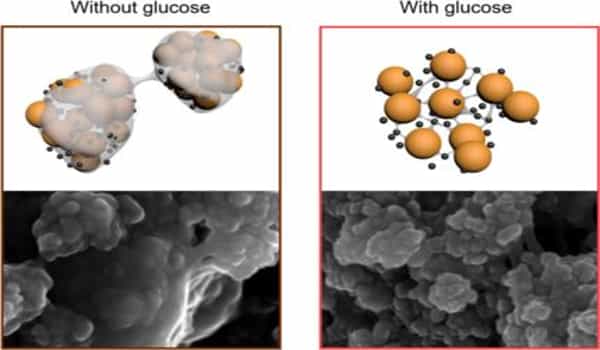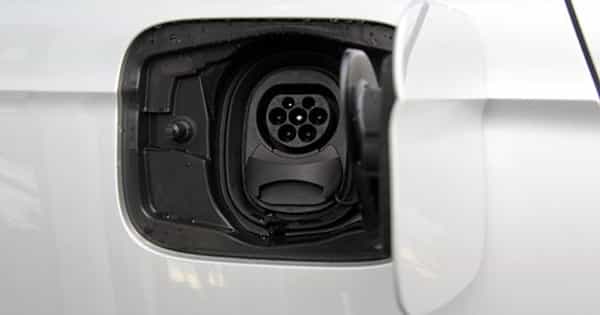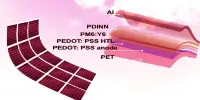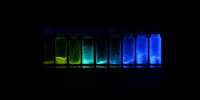The lithium-sulfur battery (Li–S battery) is a rechargeable battery with a high specific energy. Because of the low atomic weight of lithium and the moderate atomic weight of sulfur, Li–S batteries are relatively light (about the density of water). Lithium-sulfur batteries have the potential to outperform lithium-ion cells due to their higher energy density and lower cost due to the use of sulfur rather than cobalt, which is commonly used in lithium-ion batteries.
Researchers from the Monash Energy Institute have created a longer-lasting, lighter, more sustainable alternative to lithium-ion batteries, which are used in aviation, electric vehicles, and submarines. The Monash team, with help from CSIRO, report in Nature Communications that by using a glucose-based additive on the positive electrode, they were able to stabilize lithium-sulfur battery technology, which has long been touted as the foundation for the next generation of batteries.
“This technology could lead to vehicles such as electric buses and trucks that can travel from Melbourne to Sydney without needing to be recharged in less than a decade. It may also enable innovation in delivery and agricultural drones, where weight is critical “Professor Mainak Majumder of the Department of Mechanical and Aerospace Engineering and Associate Director of the Monash Energy Institute is the lead author.
Simply by adding sugar, researchers have created a longer-lasting, lighter, more sustainable rival to the lithium-ion batteries that are essential for aviation, electric vehicles and submarines.
Lithium-sulfur batteries, in theory, could store two to five times the energy of lithium-ion batteries of the same weight. The problem has been that the electrodes deteriorated quickly in use, and the batteries failed. There were two reasons for this: the positive sulfur electrode was weakened by significant expansion and contraction, rendering it inaccessible to lithium, and the negative lithium electrode was contaminated with sulfur compounds.
Lithium-sulfur technology has the potential to provide cheaper, lighter-weight batteries that are also safer. Following its initial application in niche markets such as satellites, drones, and military vehicles, the technology has the potential to transform aviation in the long run. By 2050, electric aircraft capable of short-range flights or vertical take-off and landing (including personalized aviation and flying taxis in cities) will be viable options.

The Monash team demonstrated last year that they could open the structure of the sulfur electrode to allow for expansion and make it more accessible to lithium. They have now stabilized the sulfur by incorporating sugar into the web-like architecture of the electrode, preventing it from moving and blanketing the lithium electrode.
The team’s test-cell prototypes have been shown to have a charge-discharge life of at least 1000 cycles while still holding far more capacity than comparable lithium-ion batteries. “As a result, each charge lasts longer, extending battery life,” explains first author and Ph.D. student Yingyi Huang. “Making the batteries also does not necessitate the use of exotic, toxic, or expensive materials.” A 1988 geochemistry report that describes how sugar-based substances resist degradation in geological sediments by forming strong bonds with sulfides inspired Yingyi and her colleagues.
“While our team has solved many of the challenges on the cathode side of the battery, there is still need for further innovation into the protection of the lithium metal anode to enable large-scale uptake of this promising technology—innovations that may be right around the corner,” says Dr. Mahdokht Shaibani, second author and Monash researcher.
The process was created by the Monash team, with assistance from Dr. Matthew Hill’s research group at CSIRO Manufacturing. The Australian Research Council and the Department of Industry, Innovation, and Science have provided funding to Monash University’s Lithium-sulfur Battery Research Program. Cleanfuture Energy, Australia, an Australian subsidiary of Thailand’s Enserv Group, has also contributed to the work.
Enserv Australia hopes to develop and manufacture the batteries in Australia, the world’s largest lithium producer. “We would be looking to use the technology to enter the growing market for electric vehicles and electronic devices,” says Enserv Australia’s Managing Director, Mark Gustowski. “Within the next five years, we hope to manufacture the first lithium-sulfur batteries in Australia using Australian lithium.”















